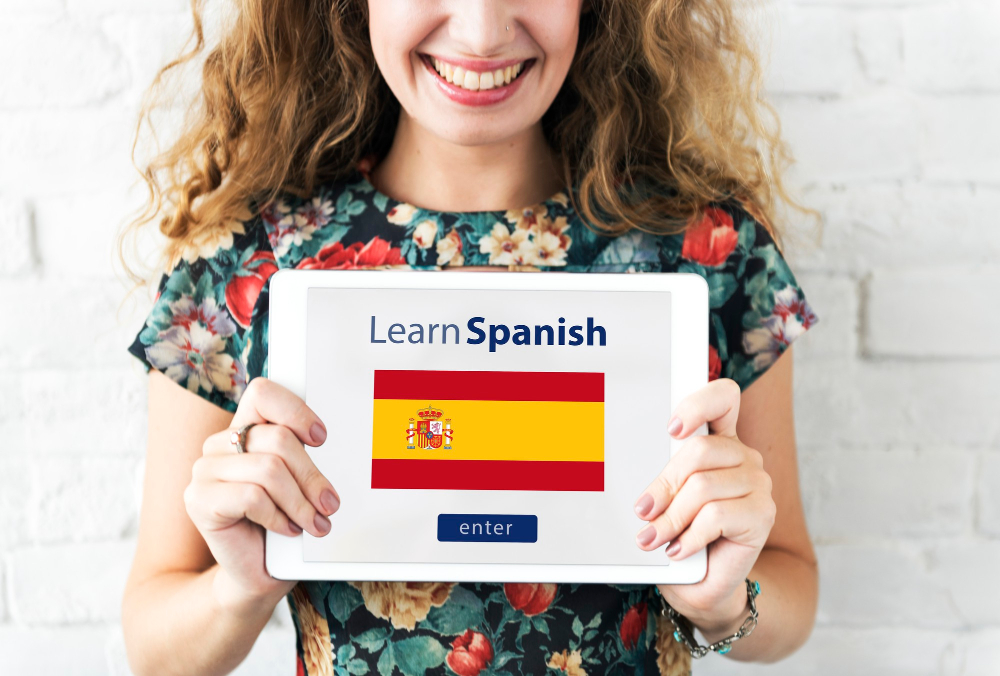How Long Does It Take to Learn Spanish?
Published 16th September 2024

You're pretty impressed the day your darling child returns after their first Spanish lesson at secondary school. “Un, dos, tres,” they dutifully count. “Me llamo Ricky Martin.”
You get your samba on in the kitchen and convince yourself you have a future linguist on your hands. They’ll be proficient in no time. You imagine your future retirement, soaking up the sun in Barcelona while little Ricky works an important job for the UN.
Of course, a few years in, it’s clear the UN is not in Barcelona, your child is not called Ricky Martin, and he’s still struggling with the basics.
“Un, dos, tres… Is it cinq, Mum?” he asks in year nine.
This may take longer than you first thought.
So How Long Should It Take to Learn Spanish?
Just be glad your child isn’t trying to learn Korean. As one of the Romance languages, Spanish is deemed an easier nut to crack than many others. It has some similarities to English, after all. That doesn’t mean it’s simple to learn though or that it’s a quick process.
According to estimates by the CEFR scale, you can reach:
- Beginner level in around 180 to 200 hours
- Intermediate in 350 to 600 hours
- Advanced in just (!) 700 to 1200 hours.
So, good luck with that chat with Ricky about the 1200 hours you’d like him to spend on Spanish over the two-year GCSE course.
Of course, how long it takes to learn to speak Spanish will be based on many factors: the child’s aptitude for languages, their memory, how often the student practises, how immersed they are in the language on an everyday basis and how proficient they aim to be.
Why Does Spanish Matter?
You Can Expand Their Future Potential
Sometimes students don’t see the point in languages. They might think they can muddle along using Google Translate rather than do the work.
But you get it! At the same time that the world has become increasingly global, the number of students taking a language at GCSE, A level and degree level has decreased.
If your child wants a chance to travel and work in one of the twenty countries that use Spanish as an official language, Spanish matters.
If they want to work for large corporations with customers across the world, Spanish matters.
Improve Their Chances of Getting Into a Competitive University
Top universities care about Spanish too. Our recent blog post asked how to choose a good university, but another question is how to ensure that a good university chooses you.
The English Baccalaureate, a respected measure of pupil performance, is one of the benchmarks used by universities to choose those students they believe capable of degree-level success. Students who achieve the English Baccalaureate achieve a pass at GCSE in all of the following:
- English Language and English Literature
- Maths
- The sciences
- GSELECT bleography or History
- A language
Since only 10% of those at secondary schools are taking GCSE languages, a good grade in Spanish puts your child ahead of the rest.
Why Hire a Spanish Tutor?
Give Them Time
This may be a blog about Spanish, but the need for a Spanish tutor is a matter of maths.
The 1.5 hours per week in school is unlikely to get your child the grades they want and deserve. The curriculum lends them less than 60 hours per year, 120 in two years.
Even ignoring the teacher getting flu for the whole of December, the disruptive girl in their class, school trips, sports days and the lad who sits next to them picking his nose each lesson, they’re unlikely to reach beginner level there.
If your child can complete an extra hour of quality Spanish learning per week, they have a chance of reaching beyond that beginner standard.
Immerse Them in Spanish
We all know that immersion in languages is the quickest way to learn. It’s why children who move countries while young become so adept so quickly. If you throw them into a classroom with thirty Spanish children five days a week, your child would have those 1000 hours under their belt in no time.
However, for most of us, the holiday in the Costa del Sol is the only time we have to immerse ourselves in the language. Hiring a Spanish tutor means that the level of engagement with the Spanish language does not have to end with the sunshine.
Our tutors are adept, fluent Spanish speakers who can keep up the conversational Spanish and accelerate your child’s learning. This helps students quickly pass from beginner to intermediate and even proficient level.
A Personalised Approach
A tutor can help students learn about subjects that will help them when they travel. It can be discouraging after years of study to feel that you still can’t speak the basics when you travel.
Many students feel frustrated by learning phrases such as En mi bolso tengo un bolígrafo plack. In my bag, I have a black pen. El gato se comió al pingüino. The cat ate the penguin. Young people want to understand how to hold a conversation when they travel, not about the contents of their bag.
A Spanish tutor can tap into your child’s interests and requirements for travel so that the next time they’re in the Canary Islands, they feel empowered to use their language skills without frightening any penguin lovers.
With this empowerment and engagement, their grades will naturally rise.
Improve Your Spanish:
FestiLingo: Spanish is a BBC Bitesize game that allows you to practise Spanish vocabulary, grammar and phonics. And it’s free!
Babbel has award-winning Spanish courses with a mixture of lessons, videos, podcasts, games, and live online classes.
Conclusion
So how long does it take to learn Spanish? How long is a piece of string? However, one thing is for sure, it will take less time with a tutor.





